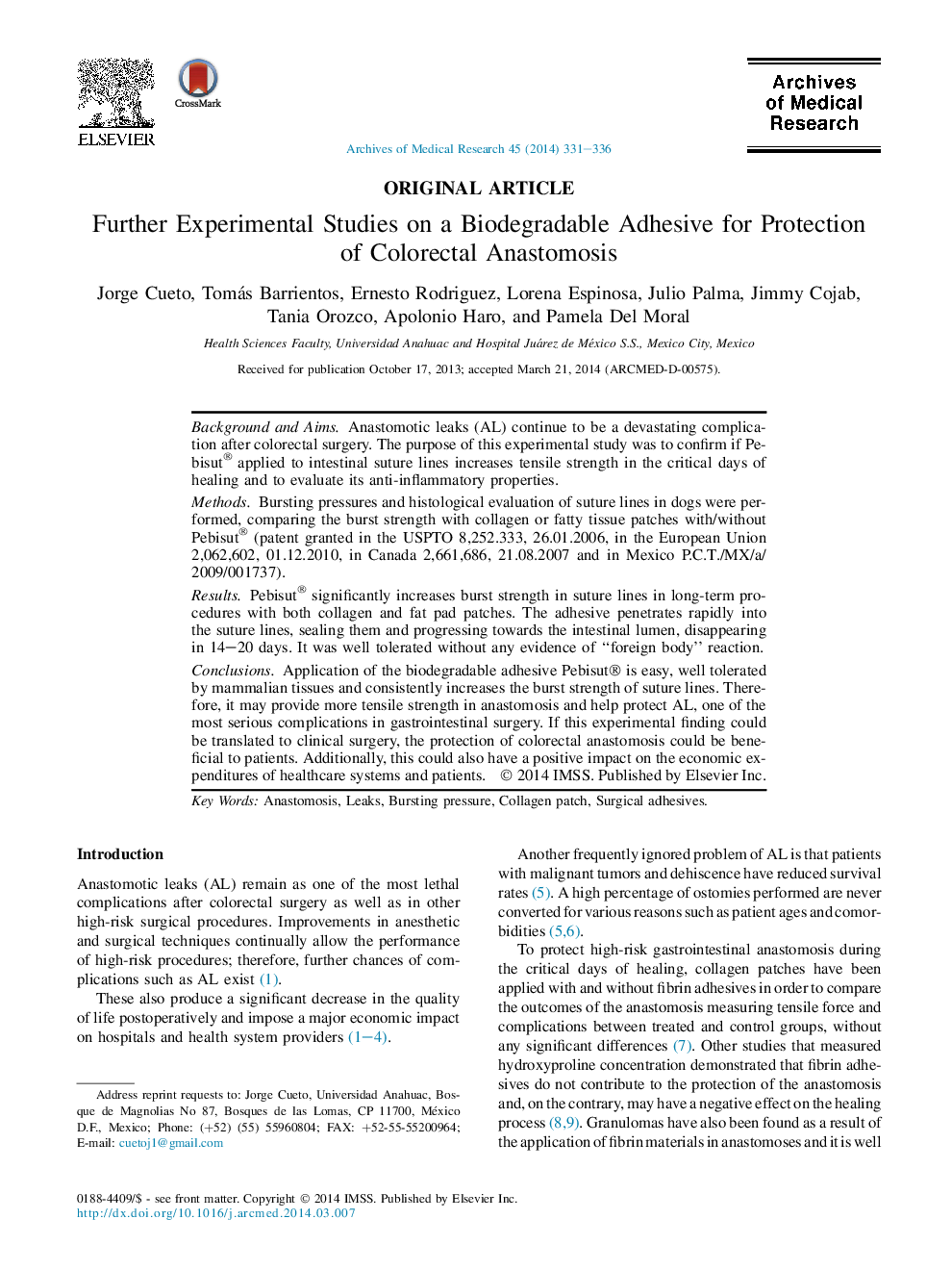| Article ID | Journal | Published Year | Pages | File Type |
|---|---|---|---|---|
| 3446508 | Archives of Medical Research | 2014 | 6 Pages |
Background and AimsAnastomotic leaks (AL) continue to be a devastating complication after colorectal surgery. The purpose of this experimental study was to confirm if Pebisut® applied to intestinal suture lines increases tensile strength in the critical days of healing and to evaluate its anti-inflammatory properties.MethodsBursting pressures and histological evaluation of suture lines in dogs were performed, comparing the burst strength with collagen or fatty tissue patches with/without Pebisut® (patent granted in the USPTO 8,252.333, 26.01.2006, in the European Union 2,062,602, 01.12.2010, in Canada 2,661,686, 21.08.2007 and in Mexico P.C.T./MX/a/2009/001737).ResultsPebisut® significantly increases burst strength in suture lines in long-term procedures with both collagen and fat pad patches. The adhesive penetrates rapidly into the suture lines, sealing them and progressing towards the intestinal lumen, disappearing in 14–20 days. It was well tolerated without any evidence of “foreign body” reaction.ConclusionsApplication of the biodegradable adhesive Pebisut® is easy, well tolerated by mammalian tissues and consistently increases the burst strength of suture lines. Therefore, it may provide more tensile strength in anastomosis and help protect AL, one of the most serious complications in gastrointestinal surgery. If this experimental finding could be translated to clinical surgery, the protection of colorectal anastomosis could be beneficial to patients. Additionally, this could also have a positive impact on the economic expenditures of healthcare systems and patients.
